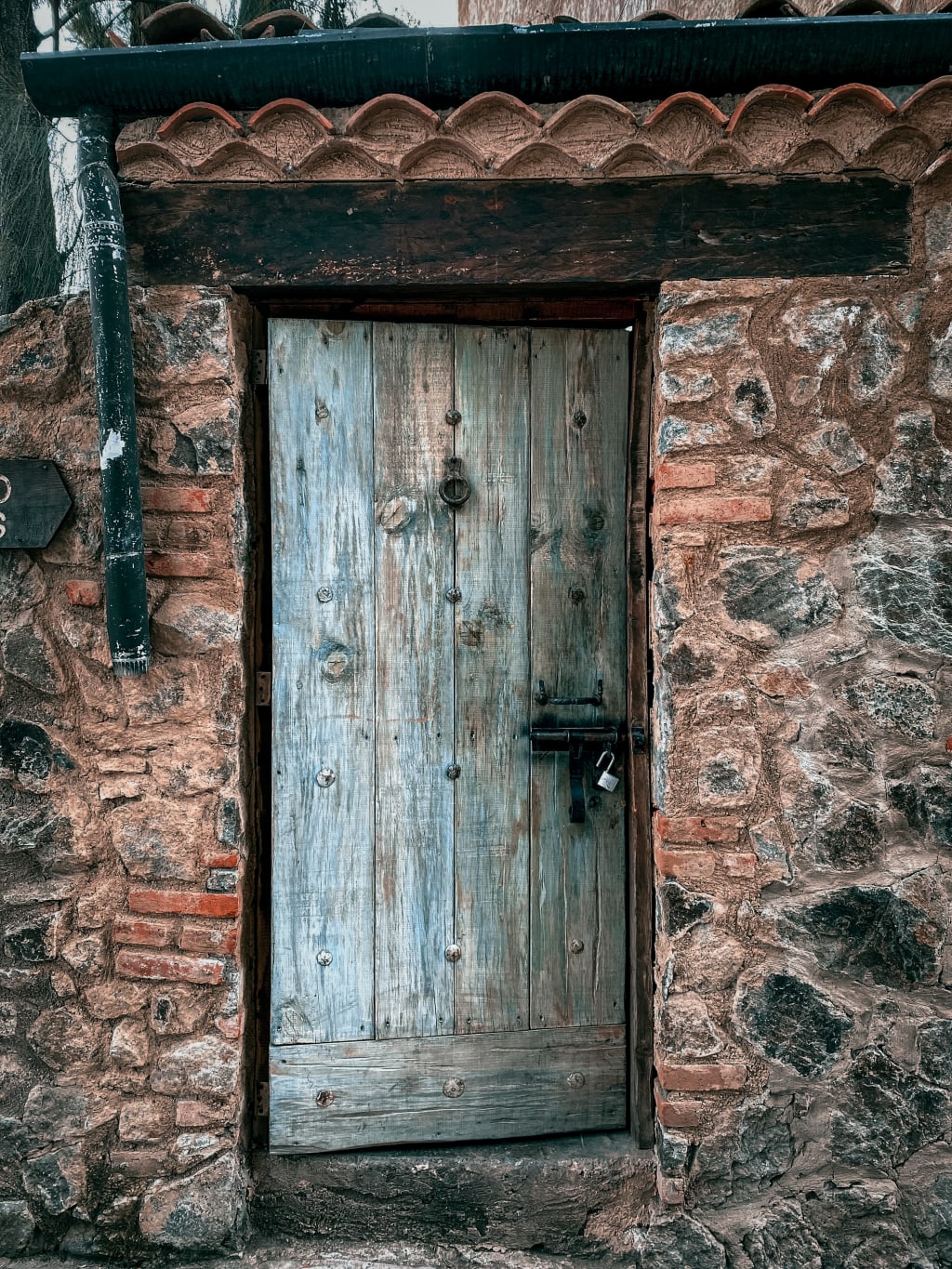On Ovid's Tale of Baucis and Philemon
To Whom Do We Open Our Door. A Reading of the Soul.

One cold, stormy night, two beggars bedraggled by wind and rain came to a town set on the side of a hill. Home to home they went, begging for shelter from the storm; but even at the richest homes they found rejection, abuse, harsh words, the doors bolted shut against them. All night the two travellers searched until finally they came to a simple, rustic cottage at the edge of town. Here an old woman named Baucis, opened her door.
Baucis and her husband Philemon had been blessed with neither wealth nor children. They had lived out their days in love and devotion, accepting their plight with humility, one of their few meagre possessions a beloved goose which guarded their home.
Welcoming them in, Baucis offered the travellers a place to dry by the fire and began to prepare a meal with what little herbs, fruits and vegetables they had left from the winter. But as the old woman poured the last of the wine for their guests, she found that the jug remained full no matter how many glasses she filled. To her amazement Baucis realised they were not two, lowly beggars sitting at their table - but the gods.
The theme of this tale is likely familiar to most of us. In so many myths and folklores, a god, an enchantress, one of the fairy-folk, a true prince or princess, comes disguised as a beggar or a witch, a lost traveller, even a beast, only to reveal their true nature later and only to the pure of heart. Where others had bolted their homes against something foreign and unwelcome that terrible night, Baucis and Philemon had opened their door. Where others had only seen something frightening, lowly, ugly, even dangerous, this humble couple had offered hospitality. And in that humility, they had inadvertently welcomed in the divine. They had not opened their door to just any divine either. They had opened their door to Jupiter, the Roman king of the gods, and his wing-footed son Mercury.
Ovid told this tale thousands of years ago to illustrate the deep value of the ancient code of hospitality but this code continues to reveal its wisdom now, and in many ways.
Many times, looking back, we can recognise ourselves in those villagers - denying or fighting against the knock of divinity at our door, all because its gifts and lessons came in a way we didn’t recognise. How many times have we missed the soul and feeling in another’s eyes because we looked for beauty or wealth or status, or even the familiar – how they measure up to our own beliefs, our own culture, creed or standards, before we allow them "in"? How many of life’s experiences have we shut out because they have been so painful or “negative” or unwanted for our life, and rejected that moment the divine offered to teach - and ultimately transform us - if we would but open our door?
Of course this doesn't mean we open our door to every stranger. These same myths are also full of warnings where a disguise that looked appealing or even not, was used to also maliciously deceive. So how did Baucis and Philemon know? What was different about them that they could somehow see?
It was the "feminine" that opened the door that night, that is, the receptive part of the two, and the masculine that supported this heart discernment that would lead them to the gods. This heart-centre is also symbolised by the old couple's devotion to one another, and by the beloved goose that protected their home. The goose, like the swan, is a symbol of both Hera and Venus, representing love, devotion and ultimately, The Heart. It was the receptive discernment of the heart, symbolised by Baucis, who knew when to open to the unknown. And here the unknown was Jupiter: representing the gifts of luck, knowledge, wisdom, expansion and growth, and perhaps “evolution” - a “god” who can represent the lessons that give us the ability to see all things from a much greater point of view. ...And of course, his wing-footed son Mercury, the messenger of the gods. With his quicksilver ability to see both sides in a situation, to see into this world as well as the wider vision of the immortal, and to be able to unite what can often feel to be impossible opposites toward, ultimately, transcendence.
At the end of Ovid's wise tale, the gods destroy the town that turned them away (- those parts of us that we outgrow, that do not serve our highest purpose, the ego perhaps, that fights against anything it does not know) and replaced the couple’s humble cottage with a magnificent temple. And despite their hardships in life, at their death Jupiter would give them the greatest reward: transforming them into a pair of trees to overlook the temple, one linden and one oak, intertwined together; a beautiful symbol of the united "male and female" principles of heart and mind inside of all of us, spirit and soul, heaven and earth. Whole and finally one in nature, and immortal.
~ Rachel Alana (R.A Falconer) Midwives of the Soul
If you enjoyed this article, please consider leaving a tip to help the author continue to create high quality content. Can't afford to tip, but would still like to support the author? You can do so by leaving a heart, and by sharing this article to Facebook or other platforms. Midwives of the Soul is also now on Patreon.
https://www.patreon.com/midwivesofthesoul
About the Creator
R.A Falconer
Writer, Creative, Intuitive. Mother. Curator at Midwives of the Soul.
Human.
If you like my work, please be sure to heart the post! If you're able to leave a tip, it'd be greatly appreciated. Thank you!<3






Comments
There are no comments for this story
Be the first to respond and start the conversation.